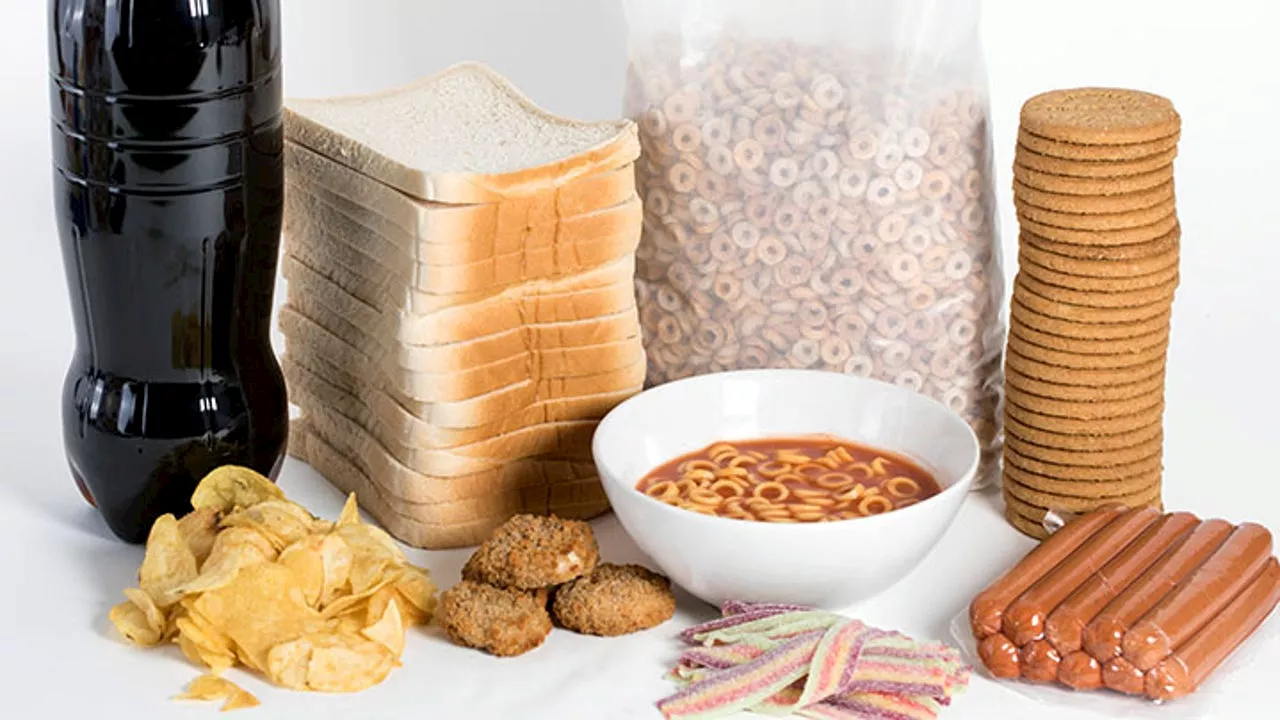Health
New Study Links Ultra-Processed Foods to Rising Colon Cancer Risk

A recent study has revealed a significant association between the consumption of ultra-processed foods and an increased risk of early signs of colon cancer in young adults. Conducted by researchers at the Mass General Brigham Cancer Institute, this investigation analyzed data from nearly 30,000 young, healthy women, highlighting growing concerns among health professionals regarding rising colorectal cancer diagnoses in this demographic.
The research indicates that a higher intake of ultra-processed foods correlates with a greater likelihood of developing colorectal precursor lesions known as colon adenomas. These foods, which include items such as boxed soups and frozen meals, are typically made with industrial ingredients that are not commonly found in home kitchens. In fact, public health estimates suggest that ultra-processed foods constitute approximately 70% of the average American diet.
Dr. Katherine Van Loon, a professor at UCSF and the director of the UCS Global Cancer Program, emphasized the importance of these findings in addressing the concerning rise of colorectal cancer among younger populations. She noted, “Every patient in my clinic is very, very young. We’re seeing decreasing rates in people over 45, but rising rates in younger people. This is resulting in a rising mortality rate from an otherwise preventable disease.”
Historically, early-onset colorectal cancer has been associated with factors such as obesity, Type 2 diabetes, sedentary lifestyles, and diets high in red and processed meats. However, Dr. Van Loon pointed out that many of her young patients do not fit these traditional risk profiles. “That’s why this study is so important,” she stated, adding that it adds another layer to the potential drivers behind this alarming trend.
Although the study did not specify individual foods involved, it underscored that ultra-processed items are often convenient and have extended shelf lives, characteristics that made them staples in American households during the 1970s, 1980s, and 1990s. Dr. Van Loon remains optimistic about the possibility of reversing the negative impacts of these dietary habits. Drawing parallels to tobacco research, she noted, “We know from tobacco research that when someone stops smoking, their cancer risk decreases. It’s not too late to intervene, stop bad habits and pass on good ones to younger generations.”
To mitigate risks, Dr. Van Loon advocates for a diet that prioritizes fresh foods, including vegetables and unprocessed meats. She also recommends that individuals aged 45 and older undergo screenings for colorectal cancer. Additionally, she urges all age groups to take symptoms seriously. “If someone is experiencing bowel changes, blood in their stool, abdominal pain, cramping or unexplained weight loss, they should see a doctor,” she cautioned. “Just because you’re not yet 45 doesn’t mean those symptoms don’t need medical attention.”
Dr. Van Loon’s insights reinforce the importance of raising awareness and taking proactive measures to combat the rising rates of colorectal cancer. Early action and informed dietary choices could play a critical role in reversing this troubling trend.
-

 Science1 month ago
Science1 month agoNostradamus’ 2026 Predictions: Star Death and Dark Events Loom
-

 Technology2 months ago
Technology2 months agoOpenAI to Implement Age Verification for ChatGPT by December 2025
-

 Technology7 months ago
Technology7 months agoDiscover the Top 10 Calorie Counting Apps of 2025
-

 Health5 months ago
Health5 months agoBella Hadid Shares Health Update After Treatment for Lyme Disease
-

 Health5 months ago
Health5 months agoAnalysts Project Stronger Growth for Apple’s iPhone 17 Lineup
-

 Technology5 months ago
Technology5 months agoElectric Moto Influencer Surronster Arrested in Tijuana
-

 Education5 months ago
Education5 months agoHarvard Secures Court Victory Over Federal Funding Cuts
-

 Health5 months ago
Health5 months agoErin Bates Shares Recovery Update Following Sepsis Complications
-

 Technology7 months ago
Technology7 months agoMeta Initiates $60B AI Data Center Expansion, Starting in Ohio
-

 Technology6 months ago
Technology6 months agoDiscover How to Reverse Image Search Using ChatGPT Effortlessly
-

 Science4 months ago
Science4 months agoStarship V3 Set for 2026 Launch After Successful Final Test of Version 2
-

 Technology7 months ago
Technology7 months agoRecovering a Suspended TikTok Account: A Step-by-Step Guide





















